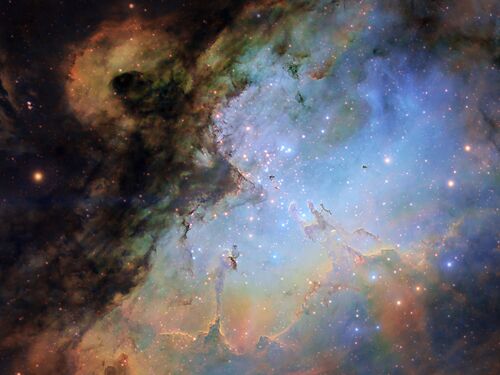Completed
The Exoplanet Science Strategy study will survey the status of the field of exoplanet science. The committee will recommend an Exoplanet Science Strategy that outlines the key scientific questions for exoplanet science and research and related near-, medium-, and far-term measurement and technology goals; and discuss which of the key goals of the committee’s Strategy could be addressed via current decadal survey recommended priority activities and also identify opportunities for coordination with international partners, commercial partners, and not-for-profit partners.
Featured publication
Consensus
·2018
The past decade has delivered remarkable discoveries in the study of exoplanets. Hand-in-hand with these advances, a theoretical understanding of the myriad of processes that dictate the formation and evolution of planets has matured, spurred on by the avalanche of unexpected discoveries. Appreciati...
View details
Description
In preparation for and as an input to the upcoming decadal surveys in astronomy and astrophysics and planetary science, the National Academies of Sciences, Engineering and Medicine will appoint an ad hoc committee to perform a study with the following objectives:
- Survey the status of the field of exoplanet science, including the use of current and planned facilities such as Transiting Exoplanet Survey Satellite, the James Webb Space Telescope, the Wide Field InfraRed Survey Telescope, and any other telescope, spacecraft, or instrument, as appropriate;
- Recommend an Exoplanet Science Strategy that outlines the key scientific questions for exoplanet science and research and related near-, medium-, and far-term measurement and technology goals. The Strategy will include the search for life in the universe as well as cross-discipline opportunities in Earth science, astrophysics, heliophysics, and planetary science.
- Discuss which of the key goals of the committee’s Strategy could be addressed via current decadal survey recommended priority activities and also identify opportunities for coordination with international partners, commercial partners, and not-for-profit partners;
In the course of conducting this study, the committee will consider and regularly consult with the concurrent study “State of the Science of Astrobiology,” in the area of assessing habitability, searching for signs of life, and other relevant areas of scientific overlap . Also the committee will not revisit or redefine the scientific priorities or mission recommendations from previous decadal surveys.
Contributors
Committee
Co-Chair
Co-Chair
Member
Member
Member
Member
Member
Member
Member
Member
Member
Member
Member
Member
Sponsors
NASA
Staff
Nathan Boll
Lead
Christopher Jones
Lead
Dionna Wise
More like this
Discover
Events
Right Now & Next Up
Stay in the loop with can’t-miss sessions, live events, and activities happening over the next two days.
NAS Building Guided Tours Available!
Participate in a one-hour guided tour of the historic National Academy of Sciences building, highlighting its distinctive architecture, renowned artwork, and the intersection of art, science, and culture.
